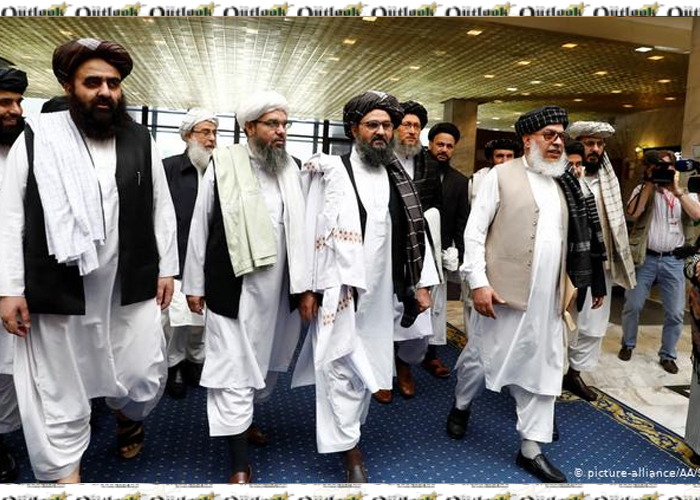The continued violence during the last year up until now has forced the United States to reconsider the withdrawal of its forces from Afghanistan. The intensify of violence targeting the Afghan security forces and civilians alike has made the world a scary place, amid loud thinking that the objectives of the Doha Agreement have not be achieved.
Earlier, SIGAR reported 2,586 civilian casualties from October 1 to December 31 last year, including 810 killed and 1,776 wounded. The proportion of casualties caused by improvised explosive devices increased by nearly 17 percent in this quarter. Similarly, an increase in magnetically attacked IEDs or sticky bomb attacks has also been observed.
The spike in violence only suggests the Taliban’s intention to grab more and more land and social space. The uptick in Taliban’s attacks is considered by many to be a clear violation of the agreement with the United States, which Washington says included a promised reduction in violence.
Afghan officials have long complained about the Taliban’s rigid attitude. Simultaneously, the Pentagon reported earlier that the Taliban maintained “close ties” with al-Qaeda, further increasing doubts about the possibility of positive change in the Taliban’s behavior once international forces leaves Afghanistan. One of the foremost requirements for paving the ground for peace agreement is that the Taliban prove a break of ties with al-Qaeda and other foreign terrorist groups.
Supporting the peace process, Afghan President Mohammad Ashraf Ghani believes that if “the objective of the Taliban is to dominate and give us the peace of the graveyard, then that will have very negative consequences.”
Afghanistan’s ambassador to Washington, Roya Rahmani, went a step ahead as she said earlier in a Washington Post article that “the consequences of a false peace deal are as dire as no deal at all.”
The situation on the ground in the country is far from ideal, should the parallel peace processes collapse – between the US and the Taliban and between the Kabul government and the Taliban – the situation will degenerate further.
The Afghans’ key demand is an immediate ceasefire, but the Taliban are more interested in forming an interim government.
Amidst the ongoing violence and obstacles to fruition of peace talks, it is important to note that overprescribing the elements of an agreement – drafting one itself rather than letting it emerge from talks – will not lead to sustainable peace. This lays it open to being viewed as an imposed solution.
The Biden administration is clearly in a hurry. Trying to force the pace of the peace process reflects US frustration with the stalled talks between the Taliban and the Afghan government in Qatar, mainly due to the Taliban’s foul play and walking away from the table. An Afghan official once said that Washington has adopted a “fast food” approach, forcing everybody to consume something that is “too quick to succeed”.
MP Abdul Qayum Sajjadi said that the US proposed plan should be reformed and the Afghan Constitution has to be preserved, Afghanistan’s sovereignty and public will be respected, fundamental rights and equality of civil rights be guaranteed, and fair power-sharing in accordance with the country’s ethnic structure be defined.
Moscow hosted a meeting on Afghanistan so the parties could “get prepared” for an upcoming Istanbul meeting where they will hold full-fledged direct peace talks under the auspices of the United Nation. Afghans hope that the next meeting in Istanbul is likely to push the peace process forward and pave the ground for reaching an agreement between the Taliban and the Ghani administration.
Both sides to the conflict must realize that a conducive atmosphere free from violence is imperative to settle the terms and conditions for the future political setup.
The Taliban, in particular, have to demonstrate with action that they are no longer associated with violence and cut their ties with al-Qaeda and other terrorist networks. For this, they have to find a middle ground.
Overall, the Taliban have to reduce violence and honor their deal with the United States. The support of regional and global actors to the peace process, which has reached a significant juncture, is highly important. A hasty troop pullout or prescribing the elements of the agreement is most likely to be counterproductive and may harm the process.
Afghanistan’s international allies and regional stakeholders should not let the process fail. The post-deal political structure should be legitimate and on the basis of the public will and constitutional principles. All involved parties in the peace process and global actors have to push the process forward so that the negotiations bear the desired result through leading to sustainable peace.
Home » Opinion » Opportunities and Challenges of Peace Talks
Opportunities and Challenges of Peace Talks
| Hujjatullah Zia

